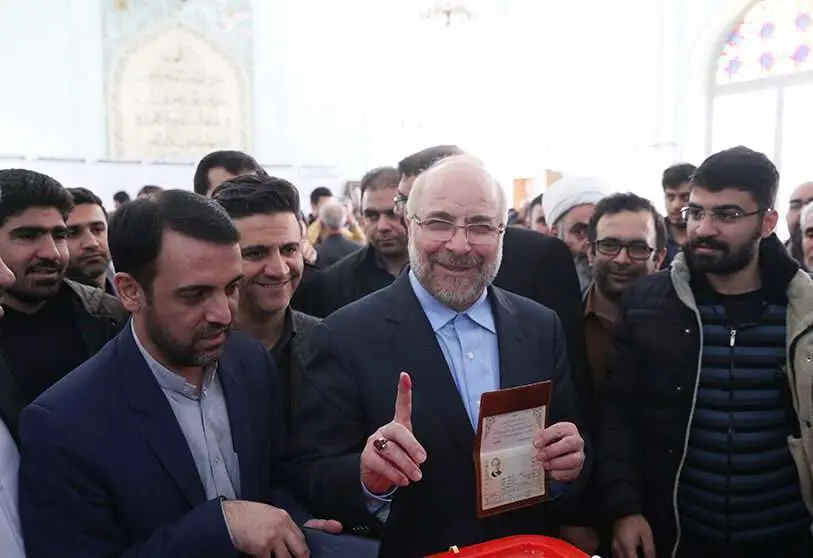Iran agrees to extend IAEA monitoring of its nuclear power plants

The UN's International Atomic Energy Agency (IAEA) reached an agreement with Iran on Monday to extend the agency's monitoring of Persian nuclear infrastructure for a month. "We were able to reach an agreement on a couple of things, related to the temporary technical understanding we reached in February," said IAEA director Rafael Grossi.
The talks between the Iranian delegation and representatives of the UN Atomic Energy Agency, led by Rafael Grossi and the head of Iran's nuclear programme, Ali Akbar Salehi, went on into the early hours of Sunday morning after the Islamic Consultative Assembly was called into session.

"I would like to stress that this is not ideal," the IAEA director general said. "It is an emergency device that we came up with in order to be able to continue these monitoring activities," Grossi acknowledged. The challenge remains, however, as the UN agency does not have access to the images for the time being, although the Atomic Energy Organisation of Iran has warned that it would keep the material already recorded by IAEA cameras.
Iran's representative to the UN's International Atomic Energy Agency, Kazem Gharibabadi, revealed the deal via his Twitter account. "We recommend the negotiating countries to take advantage of the additional opportunity provided by Iran in good faith for the complete lifting of sanctions in a practical and verifiable manner," Gharibabadi said.

The agreement comes just a day after Iranian parliamentary speaker and former Tehran mayor Mohammad Baqer Qalibaf said on Sunday that "as of 22 May and with the end of the three-month agreement, the IAEA will not have access to the data collected by the cameras inside the nuclear facilities agreed under the agreement". "The Supreme Leader has also stressed the importance of implementing the law," he added.
The Iranian parliament passed a bill in December for the partial suspension of IAEA inspections of nuclear facilities if those involved in the negotiations had not eased sanctions against Iran by February. However, in the absence of sanctions relief, negotiators at the UN's International Atomic Energy Agency reached a three-month extension of the so-called "additional protocol", a loophole in the pact that allowed the agency to capture surveillance images of Iranian sites.

According to Qalibaf, the three-month deadline for the UN nuclear agency to collect massive footage from the security cameras of Iran's nuclear power plants expired last Saturday. Therefore, the access of the International Atomic Energy Agency (IAEA) to the Persian nuclear project would have been completely restricted as of Monday, a reason that would further tighten the noose between the parties for a possible reissue of the 2015 nuclear agreement.
However, negotiations between IAEA representatives and the Iranian delegation continued into the early hours of the morning, a fact that highlights the narrowing of differences between the parties. Foreign Ministry spokesman Said Khatibzade announced that Tehran would decide on Monday to extend the three-month extension by one month. The decision would give the United States, Iran and the other signatories of the Joint Comprehensive Plan of Action (JCPOA) room for manoeuvre to try to reach an agreement in extremis.

Jatibzadé added that "it is quite clear that significant progress has been made and that an understanding is within reach" in the talks in Vienna. For Iran, the lifting of all sanctions is a conditio sine qua non for its return to the 2015 deal. For its part, the United States has said it will lift only those related to the nuclear deal, but not those linked to terrorist activities or human rights violations, a prolific terrain for the Persian regime.
US Secretary of State Antony Blinken said he has not yet ascertained whether Iran will do what it must to meet its nuclear commitments in order for sanctions to be lifted. "I think Iran knows what it has to do to get back into compliance on the nuclear side, and what we haven't seen yet is whether Iran is ready and willing to make the decision to do what it has to do. That's the test and we don't have an answer yet," he told ABC.

The definitive breakdown of the negotiations for the reactivation of the nuclear agreement is the sword of Damocles that threatens the aspirations of the international community. The visible disagreement between Tehran and Washington makes it difficult to return to the status quo prior to 2018, when Donald Trump decided to unilaterally withdraw the US from the pact. Khatibzade has advised the US that it should change course and return to its commitments under the 2015 nuclear deal "instead of using time and energy in Vienna to defend Trump's failed legacy".
While negotiations for a return to the JCPOA continue, Iran will hold a new presidential election on 18 June. Hasan Rohani, of the regime's 'moderate' line, will serve the maximum number of consecutive terms set by the Constitution and his seat will be filled, according to the latest polls, by the conservative Ali Larijani, former speaker of parliament, or the ultra-conservative Ebrahim Raisi, current president of the Supreme Court. The outcome will be decisive in determining the future of the nuclear negotiations.










